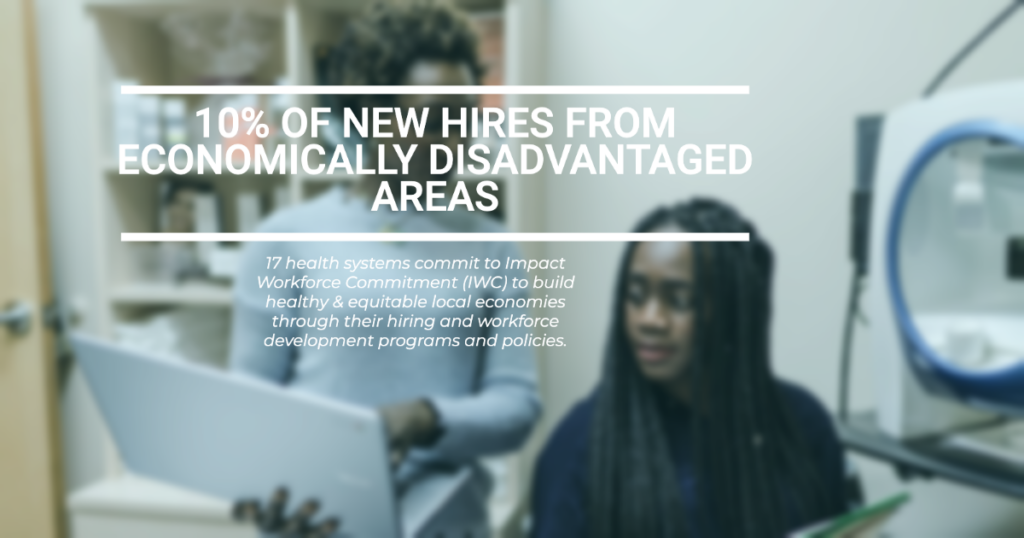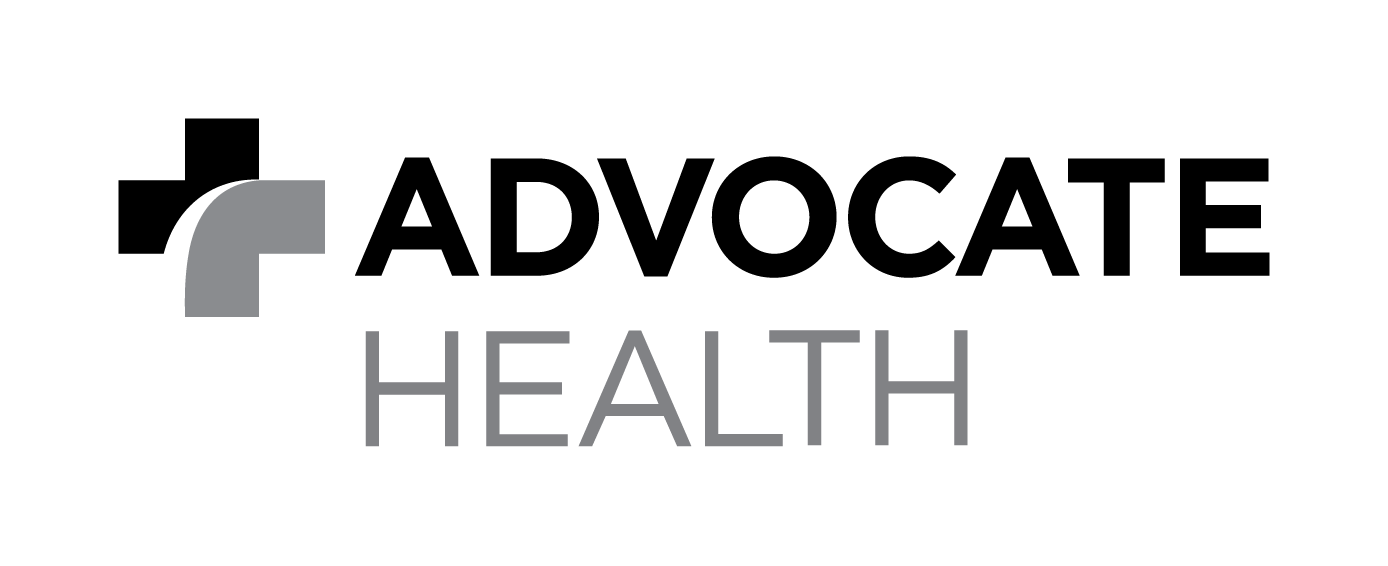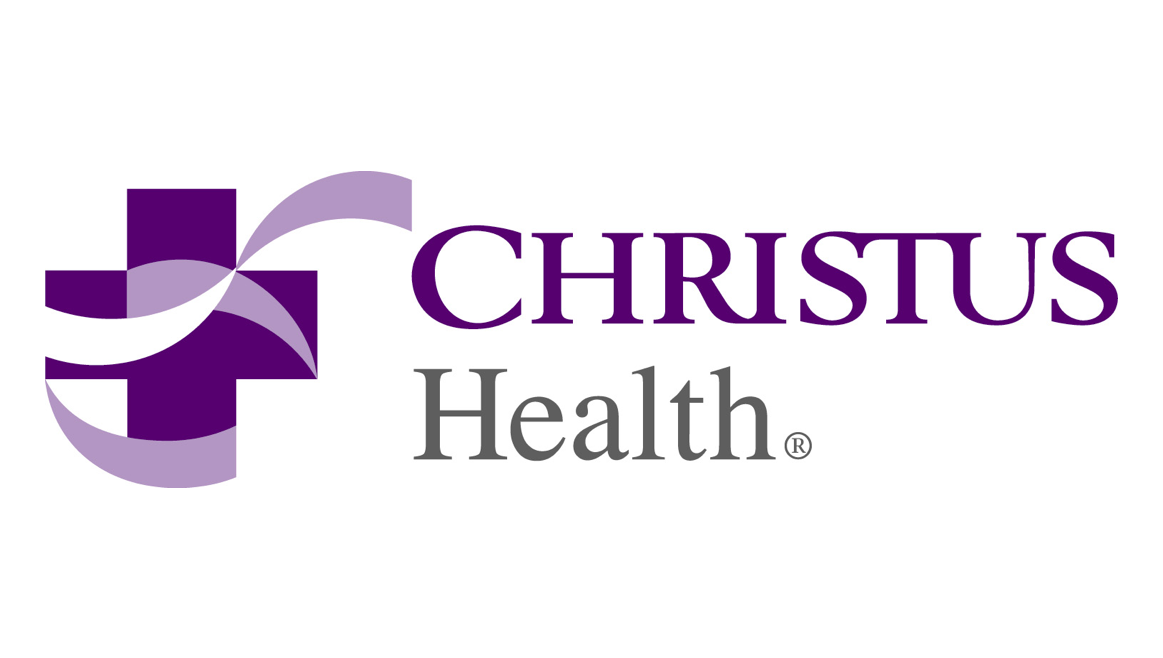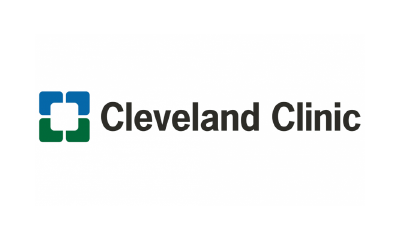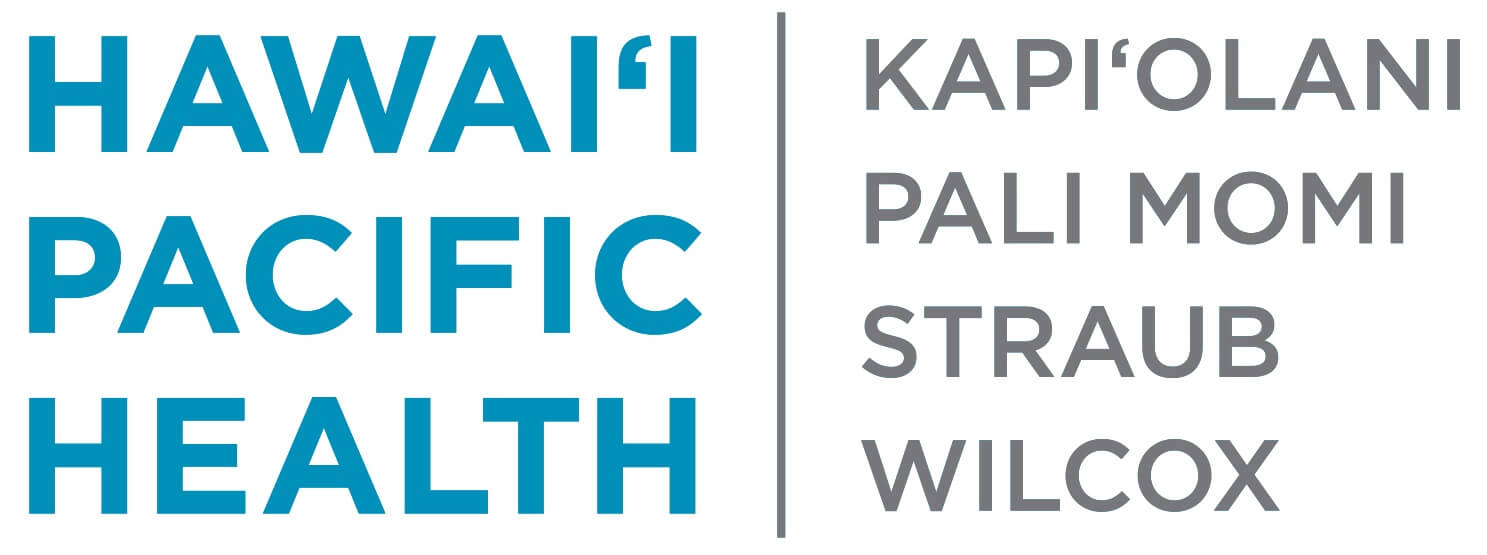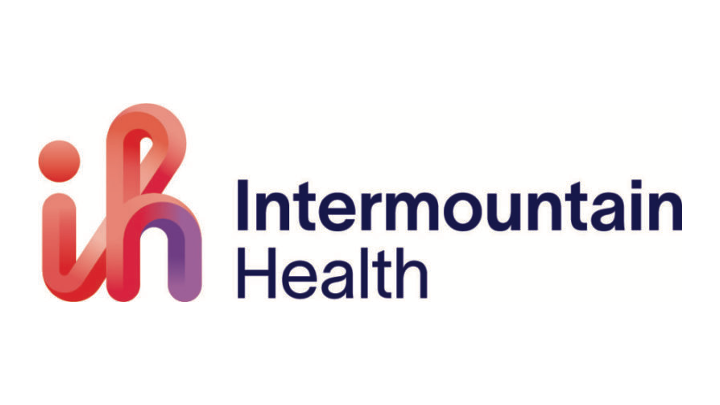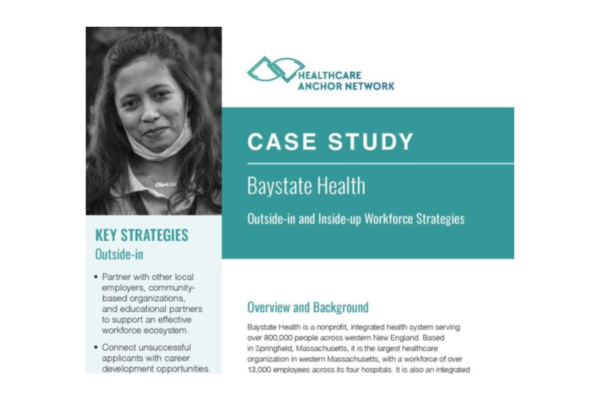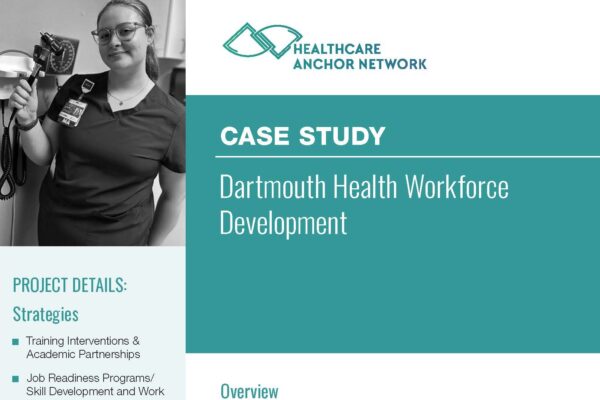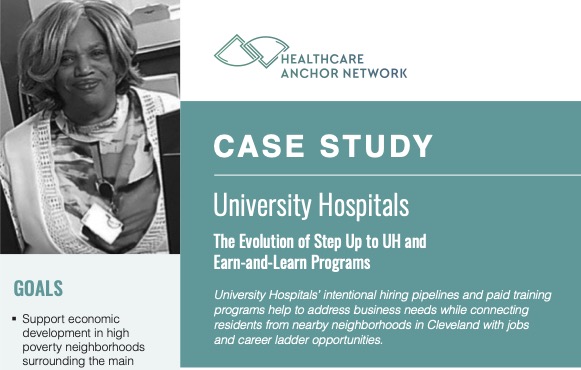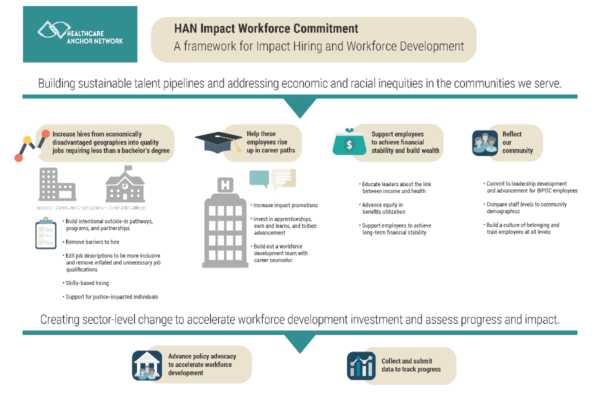Eighteen health systems across the country, some of the largest employers in their areas, have signed the “Impact Workforce Commitment” (IWC) to build healthy and strong local economies through their hiring and workforce development programs and policies. The commitment, designed in partnership with a leadership group of Healthcare Anchor Network (HAN) member health systems and the National Fund for Workforce Solutions, includes aligning hiring and workforce power with clinical and community efforts to provide opportunities for individuals who may have faced barriers to employment due to myriad factors. These factors include low income and lack of access to education and training. The commitment aims to improve societal health and well-being by creating economic opportunities and strengthening local economies.
The IWC’s 18 signatories are listed below. Here is a summary of the IWC goals.
- Reaching at least 10% of new hires annually as “impact hires” (employees hired from economically disadvantaged areas who connect to the organization through intentional pathways into jobs that require less than a bachelor’s degree) by the conclusion of the commitment in 2027. This goal will be accomplished by building and expanding partnerships, programs, and initiatives with community organizations and education providers. Additionally, signatories will edit job descriptions to include only necessary qualifications.
- Increasing the number of employees who are promoted from positions that require less than a bachelor’s degree into higher skilled, higher wage roles by 2027 through direct investment in workforce development. These investments could include apprenticeships, other earn-and-learn programs, tuition advancement, and other initiatives and internal policy changes. About 9.7 million individuals currently work in critical, lower-wage healthcare occupations (e.g., medical assistants, home health aides, nursing assistants, etc.).
- Conducting policy advocacy to accelerate workforce development investment in the public sector.
- Creating a dedicated financial support program for employees to address employee financial stability and advance equity in benefits utilization. In addition, signatories will implement strategies to help employees achieve long-term financial stability, such as 403(b) or 401(k) auto-enrollment and auto-escalation to build retirement savings.
- Ensuring fair leadership development and advancement at all health system levels through intentional training and development.
Impact Workforce Commitment (IWC) Signatories
Impact Workforce Commitment (IWC) Case Studies
Baystate Health: Outside-in and Inside-Up Workforce Strategies
In our latest case study we feature Healthcare Anchor Network (HAN) member Baystate Health, a nonprofit, integrated health system serving over 800,000 people across western New England. Based in Springfield, Massachusetts,…
Continue Reading Baystate Health: Outside-in and Inside-Up Workforce Strategies
Dartmouth Health: Building sustainable talent pipelines in rural communities
In our latest case study we feature Healthcare Anchor Network (HAN) member Dartmouth Health (DH), a nonprofit academic health system that serves rural communities in New Hampshire and Vermont through six…
Continue Reading Dartmouth Health: Building sustainable talent pipelines in rural communities
University Hospitals (UH): The Evolution of Step to UH and Earn-and-Learn Programs
University Hospitals’ (UH)’s intentional hiring pipelines and paid training programs are explored in a new case study. The case study covers the program’s inception and design, strategies employed, and key stakeholders…
Continue Reading University Hospitals (UH): The Evolution of Step to UH and Earn-and-Learn Programs
Impact Workforce Commitment (IWC) Announcement News Coverage
New HAN Impact Workforce Commitment Signatory!
University of Vermont Health Network (UVMHN) is the most recent signatory to the HAN Impact Workforce Commitment (IWC). The health system has had broad success building outside-in and inside-up professional development pipelines and educational partnerships to grow local…
Continue Reading New HAN Impact Workforce Commitment Signatory!
HAN’s Impact Workforce Commitment
Seventeen Healthcare Anchor Network (HAN) health system members signed the “Impact Workforce Commitment” (IWC) to build healthy and equitable local economies through their hiring and workforce development programs and policies. The commitment includes aligning hiring…
Health systems pledge to make 10% of new hires from disadvantaged communities
Seventeen health systems, including Cleveland Clinic and Advocate Health, have pledged a commitment to make 10% of all new hires “impact hires” – meaning employees hired from economically disadvantaged areas. The…
Continue Reading Health systems pledge to make 10% of new hires from disadvantaged communities
17 health systems commit to hiring, promoting more low-income workers by 2027
Seventeen health systems including big names like CommonSpirit Health and Providence have signed onto a pledge that at least 10% of their new hires will hail from “economically disadvantaged areas” by…
Continue Reading 17 health systems commit to hiring, promoting more low-income workers by 2027
17 health systems pledge to make at least 10% of new hires from disadvantaged areas
Seventeen health systems have signed a commitment to help boost hiring and training of lower-income individuals. The organizations signed the “Impact Workforce Commitment,” designed in partnership with a leadership group of Healthcare…
Continue Reading 17 health systems pledge to make at least 10% of new hires from disadvantaged areas
Dartmouth Health pledges to hire employees from economically disadvantaged areas
One of the largest hospital networks in northern New England, Dartmouth Health, joined 16 other health networks across the country in a new workforce commitment. The network has pledged to hire…
Continue Reading Dartmouth Health pledges to hire employees from economically disadvantaged areas
UCSF Commits to Local Hiring Goal to Foster Economic Opportunity
UC San Francisco has committed to hiring 10% of new employees from economically distressed communities by the end of 2027, as part of its continued commitment to creating greater economic opportunity…
Continue Reading UCSF Commits to Local Hiring Goal to Foster Economic Opportunity
Intermountain Health and University of Utah Health sign “Impact Workforce Commitment” to help build economic opportunity in local communities
Developing strong community partnerships is critical to building a more dynamic and resilient workforce that better represents local and rural communities. As part of the Impact Workforce Commitment with HAN, Intermountain…
